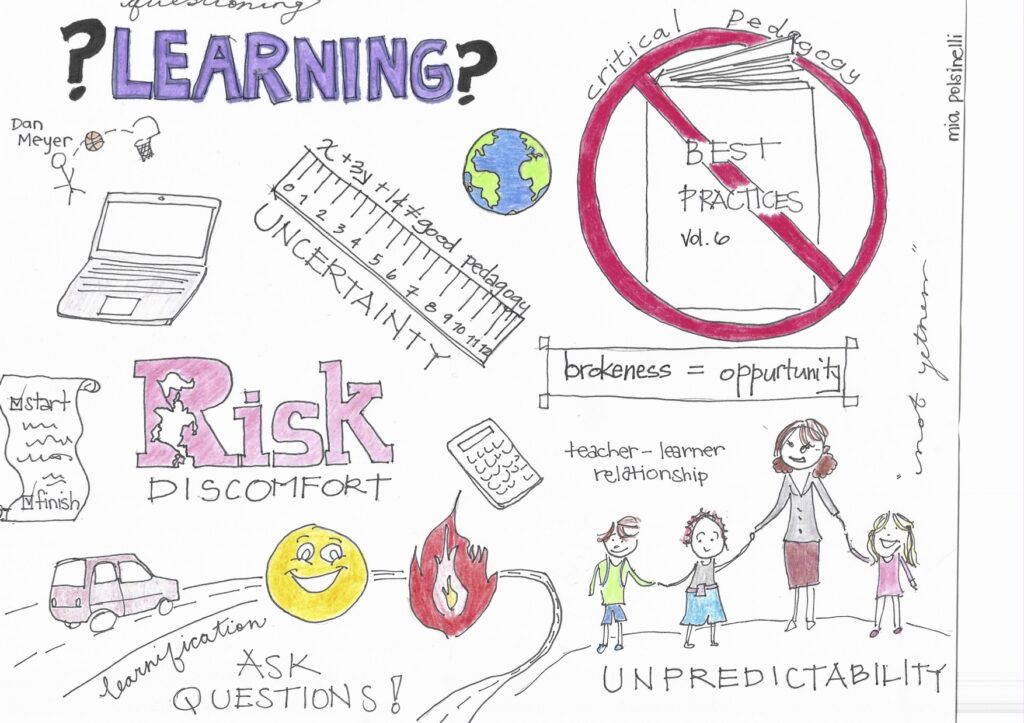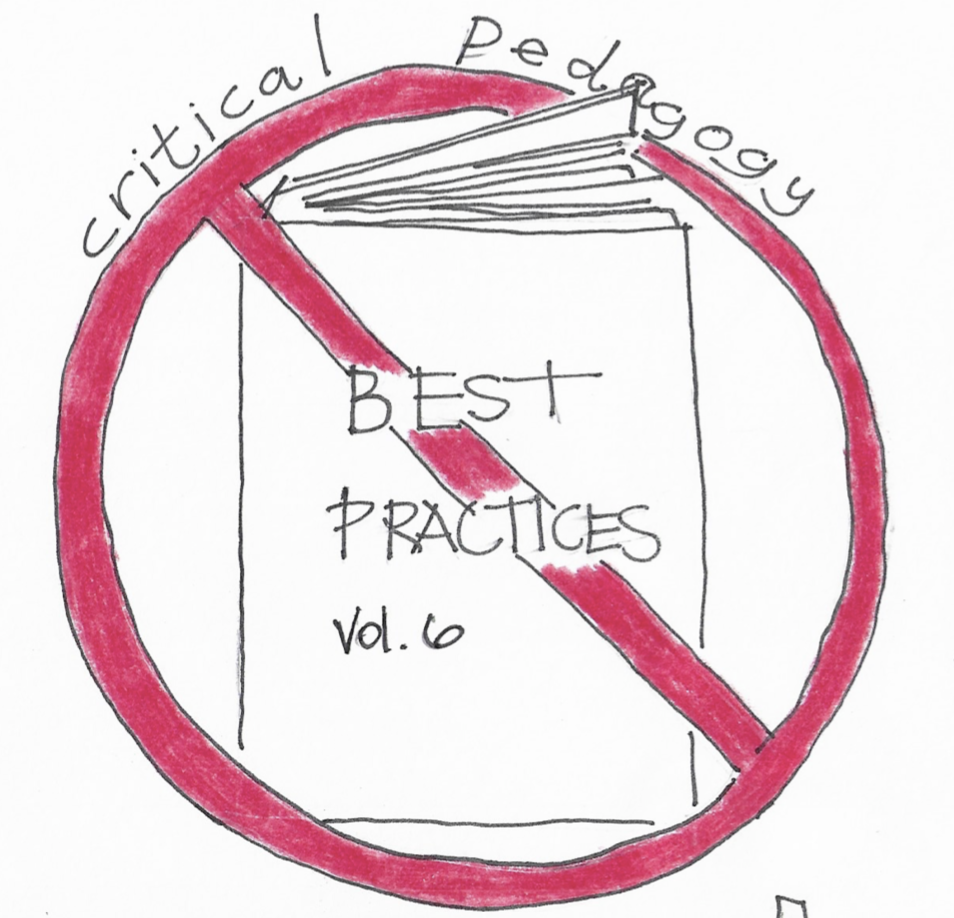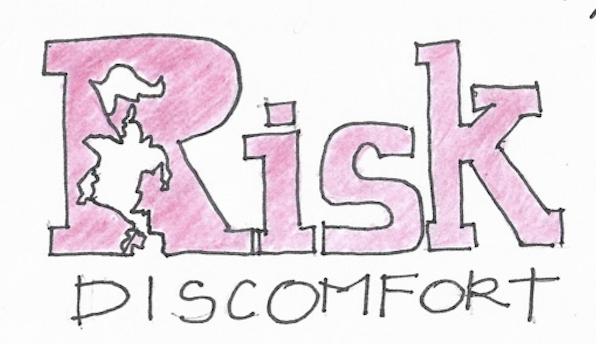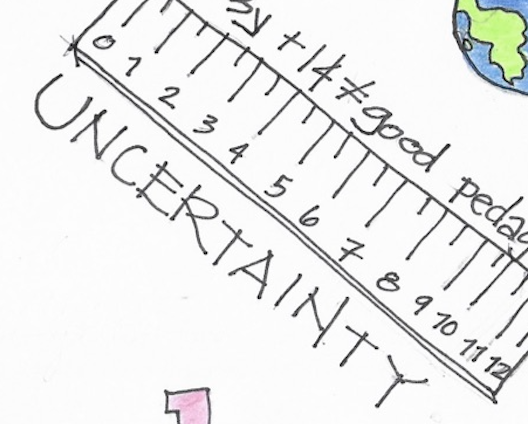
Listening to this podcast was a real eye opener for me. It forced me to develop a new view on education and the resources put out there for teachers and students. It made me realize that it’s okay to not always agree with other methods of teaching and it’s okay to ask questions; in fact, you should! I was able to get some insight on why canned courses are often seen in a negative way, that there are no set steps to good pedagogy, and that understanding is not measurable. To me, this was an incredibly insightful podcast and I will definitely take some of the lessons I highlighted above into the classroom one day with me.

This is the main component of my sketch note. It represents how Amy Collier spoke about not taking best practices at face value. The rest of the podcast is based off the idea that we have to question these practices and think critically. I wrote the words “critical pedagogy” above this drawing because I wanted to show that there is a correlation between the two. By practicing critical pedagogy, we end up asking the questions that refrain us from using best practices just because that’s what they’re labelled as.
In the podcast, Chris asks Amy to elaborate on why she uses the words risk, discomfort, unpredictability, and uncertainty; words that seem to have negative connotations. I chose to include all four of these words in my sketch note with the greatest emphasis on risk. Amy states that although these words might sound scary, they are truly the ultimate goal as they create fire and excitement in the classroom.

Another part of the podcast I wanted to emphasize through my sketch note was Amy’s desire to question learning. She says to ask yourself why we use the methods we do and to be comfortable asking these types of questions.
I would recommend this podcast to new teachers trying to gain insight on the methods of good pedagogy. I would recommend this podcast to old teachers that are just a bit too comfortable using the same lesson plans they made 10 years ago. I would recommend this podcast to really anyone in the education community that is looking to learn more and think more critically about the methods of teaching.



